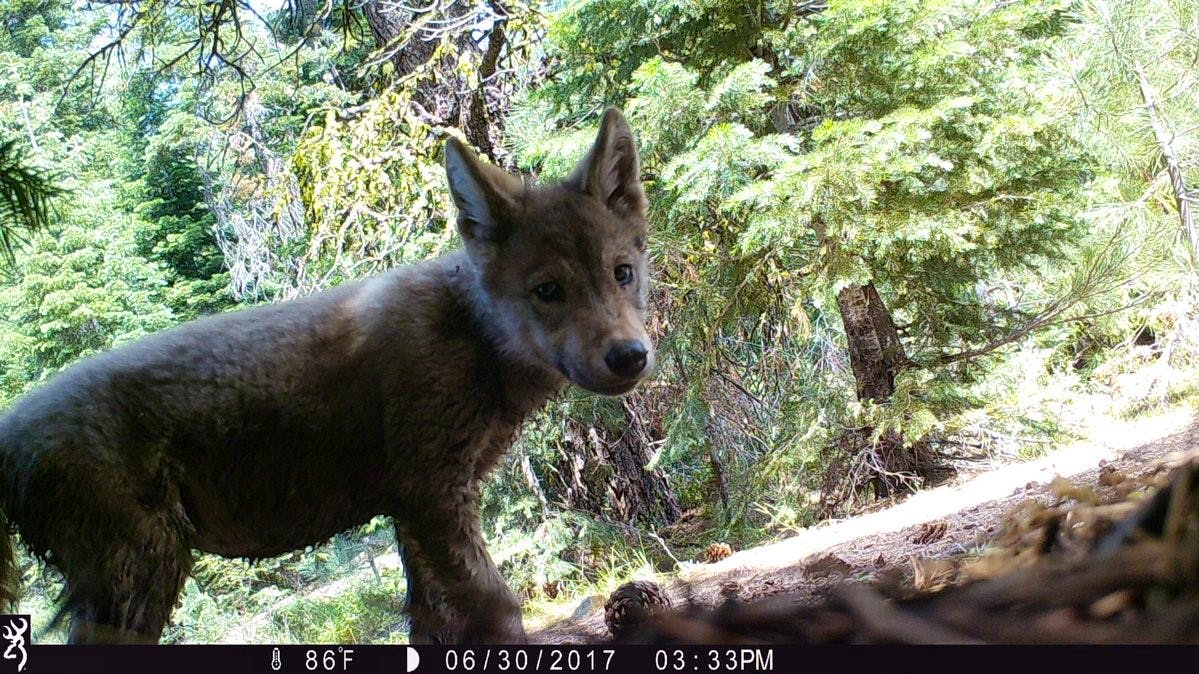The Washington Department of Fish and Wildlife (WDFW) announced today more lethal removal against a pack in the Kettle Range in northern Ferry County. The killing of the remaining two wolves would fully eliminate the entire pack. This unnamed pack inhabits the territory of the former Profanity Peak pack.
Shawn Cantrell, vice president for Field Conservation Programs for Defenders of Wildlife, issued this statement:
“Killing wolves year after year is irresponsible and inconsistent with what science tells us. With the repeated, ongoing wolf-livestock conflict on this particular grazing allotment, at what point will WDFW and the Forest Service recognize that it is time for a different solution? The decision to authorize lethal removal of the two remaining wolves in this pack is truly disgusting.
"This rancher has repeatedly put his livestock near wolf dens and rendezvous sites, setting up more senseless conflict and the resulting killings. Stemming from their failure to smartly manage coexistence and wildlife conservation, WDFW is wholly responsible for the loss of this pack.”
For over 75 years, Defenders of Wildlife has remained dedicated to protecting all native animals and plants in their natural communities. With a nationwide network of nearly 2.1 million members and supporters, Defenders of Wildlife is a leading advocate for innovative solutions to safeguard our wildlife for generations to come. To learn more, please visit https://defenders.org/newsroom or follow us on X @Defenders.
Media Contact
News

Study Led by Defenders of Wildlife Scientist Shows Noise Pollution Impacts on Migratory Birds


